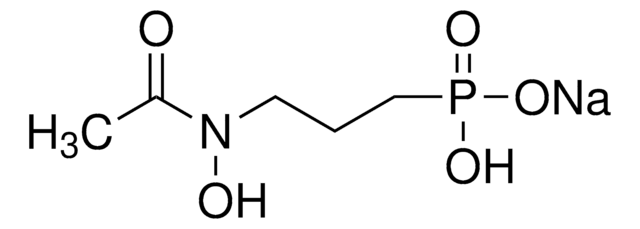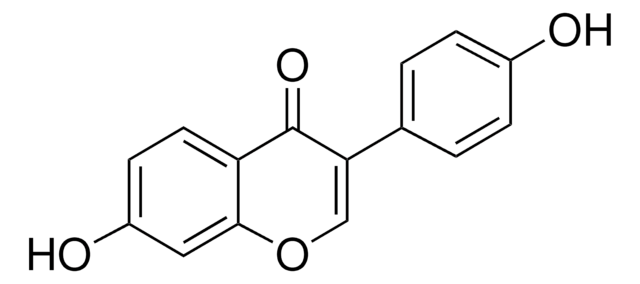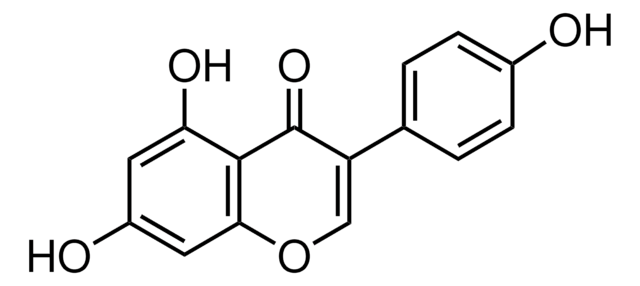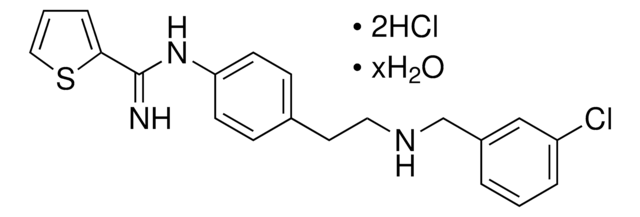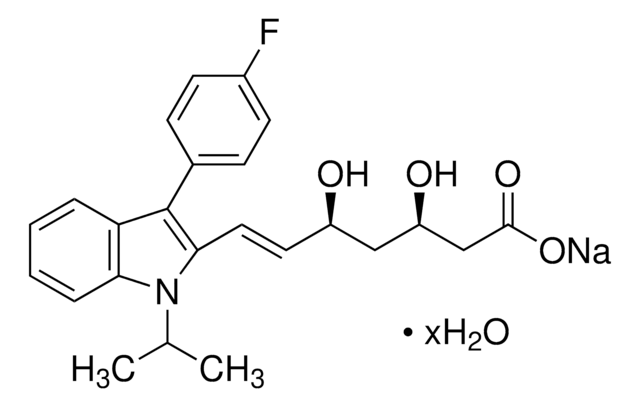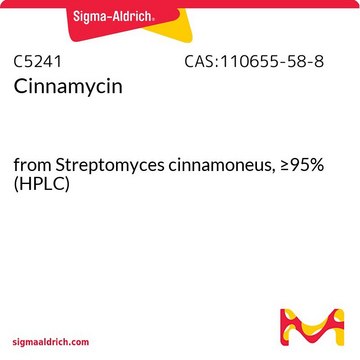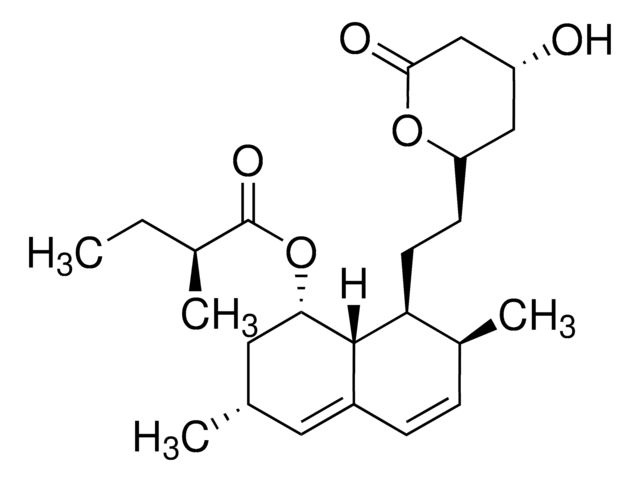F8682
Fosmidomycin sodium salt hydrate
≥95% (NMR)
Synonym(s):
(3-(Formylhydroxyamino)propyl)phosphonic acid sodium salt, (3-(N-Hydroxyformamido)propyl)phosphonic acid sodium salt, FR 31564
Sign Into View Organizational & Contract Pricing
All Photos(1)
About This Item
Empirical Formula (Hill Notation):
C4H10NO5P · xNa+ · yH2O
CAS Number:
Molecular Weight:
183.10 (anhydrous free acid basis)
UNSPSC Code:
12352200
NACRES:
NA.77
Recommended Products
Quality Level
Assay
≥95% (NMR)
form
powder
storage condition
desiccated
color
white to beige
solubility
H2O: 20 mg/mL, clear
storage temp.
−20°C
InChI
1S/C4H10NO5P/c6-4-5(7)2-1-3-11(8,9)10/h4,7H,1-3H2,(H2,8,9,10)
InChI key
GJXWDTUCERCKIX-UHFFFAOYSA-N
Application
Fosmidomycin sodium salt hydrate has been used as an inhibitor of 1-deoxy-D-xylulose 5-phosphate reductoisomerase in a study to determine monotropin carvacrol biosynthesis in Satureja khuzistanica plant.
Biochem/physiol Actions
Fosmidomycin is an inhibitor of 1-deoxy-D-xylulose 5-phosphate reductoisomerase (DXR) (MEP synthase): an antimalarial compound. 1-deoxy-D-xylulose 5-phosphate reductoisomerase (DXR) is an enzyme involved in the first step in the nonmevalonate pathway for isoprenoid biosynthesis in Gram-negative, Gram-positive bacteria, plants, and the parasite causing the most virulent form of malaria, Plasmodium falciparum (Mammals produce isoprenoids via the mevalonate pathway).
Storage Class Code
11 - Combustible Solids
WGK
WGK 3
Flash Point(F)
Not applicable
Flash Point(C)
Not applicable
Choose from one of the most recent versions:
Already Own This Product?
Find documentation for the products that you have recently purchased in the Document Library.
Customers Also Viewed
Karin Brücher et al.
Journal of medicinal chemistry, 55(14), 6566-6575 (2012-06-27)
Specific inhibition of enzymes of the non-mevalonate pathway is a promising strategy for the development of novel antiplasmodial drugs. α-Aryl-substituted β-oxa isosteres of fosmidomycin with a reverse orientation of the hydroxamic acid group were synthesized and evaluated for their inhibitory
Christoph T Behrendt et al.
Journal of medicinal chemistry, 54(19), 6796-6802 (2011-08-27)
Reverse hydroxamate-based inhibitors of IspC, a key enzyme of the non-mevalonate pathway of isoprenoid biosynthesis and a validated antimalarial target, were synthesized and biologically evaluated. The binding mode of one derivative in complex with EcIspC and a divalent metal ion
Emily R Jackson et al.
Current topics in medicinal chemistry, 12(7), 706-728 (2012-01-31)
Isoprene biosynthesis is an essential component of metabolism. Two pathways are known for the production of five-carbon (isoprene) intermediates: the mevalonate and nonmevalonate pathways. As many pathogenic organisms rely exclusively on the nonmevalonate pathway (NMP) for isoprenoids and humans do
Robert R Junker et al.
Journal of chemical ecology, 37(12), 1323-1331 (2011-12-14)
In their natural environment, plants are synchronously confronted with mutualists and antagonists, and thus benefit from signals that contain messages for both functional groups of interaction partners. Floral scents are complex blends of volatiles of different chemical classes, including benzenoids
Catherine Zinglé et al.
Bioorganic & medicinal chemistry letters, 22(21), 6563-6567 (2012-10-03)
Fosmidomycin derivatives in which the hydroxamic acid group has been replaced by several bidentate chelators as potential hydroxamic alternatives were prepared and tested against the DXR from Escherichia coli. These results illustrate the predominant role of the hydroxamate functional group
Our team of scientists has experience in all areas of research including Life Science, Material Science, Chemical Synthesis, Chromatography, Analytical and many others.
Contact Technical Service